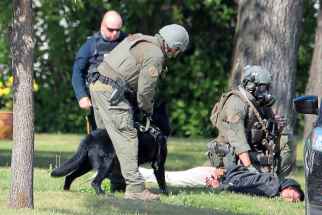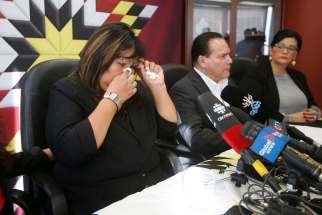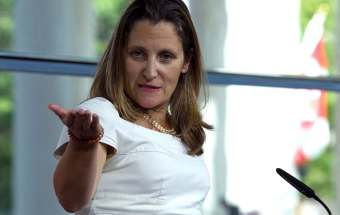Hydro bullying, racism behind resignation from board, Keeyask partnership VP says
Read this article for free:
or
Already have an account? Log in here »
To continue reading, please subscribe:
Monthly Digital Subscription
$0 for the first 4 weeks*
- Enjoy unlimited reading on winnipegfreepress.com
- Read the E-Edition, our digital replica newspaper
- Access News Break, our award-winning app
- Play interactive puzzles
*No charge for 4 weeks then price increases to the regular rate of $19.00 plus GST every four weeks. Offer available to new and qualified returning subscribers only. Cancel any time.
Monthly Digital Subscription
$4.75/week*
- Enjoy unlimited reading on winnipegfreepress.com
- Read the E-Edition, our digital replica newspaper
- Access News Break, our award-winning app
- Play interactive puzzles
*Billed as $19 plus GST every four weeks. Cancel any time.
To continue reading, please subscribe:
Add Free Press access to your Brandon Sun subscription for only an additional
$1 for the first 4 weeks*
*Your next subscription payment will increase by $1.00 and you will be charged $16.99 plus GST for four weeks. After four weeks, your payment will increase to $23.99 plus GST every four weeks.
Read unlimited articles for free today:
or
Already have an account? Log in here »
Hey there, time traveller!
This article was published 04/09/2018 (2655 days ago), so information in it may no longer be current.
Allegations of abuse are following Manitoba Hydro from its Keeyask Generating Project near Gillam back to its Winnipeg boardroom.
Martina Saunders, a member of York Factory First Nation and former vice-president of the Keeyask Hydropower Limited Partnership (KHLP) which oversees the construction project, said she resigned her board seat last year after experiencing bullying from Hydro employees. She worked with KHLP from December 2014 to February 2017.
Saunders said she’s been in talks with the Manitoba Human Rights Commission since 2017 about filing a formal complaint.
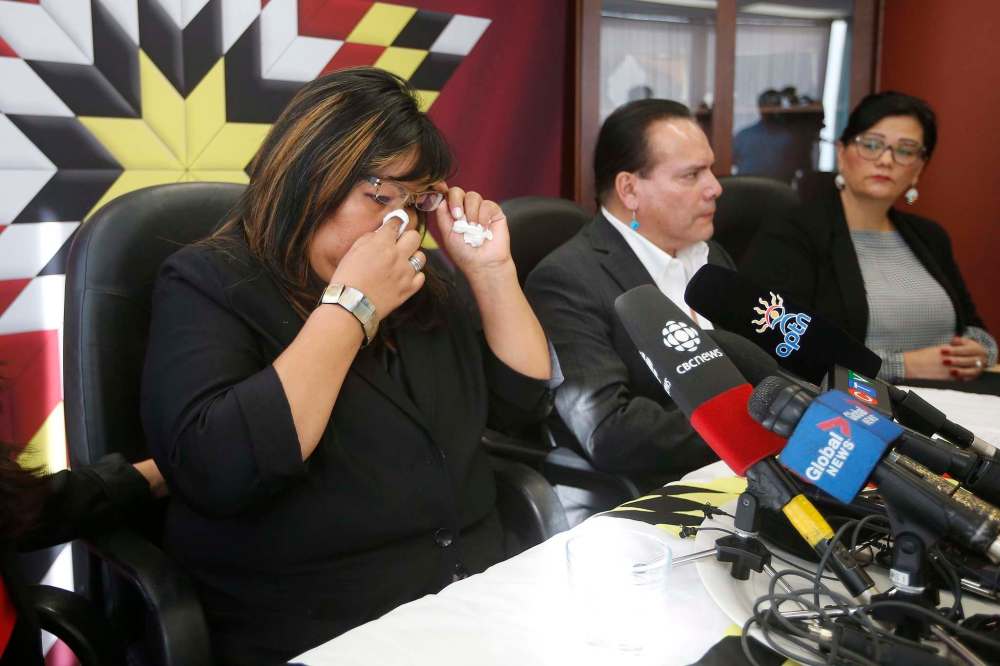
“I experienced a lot of racism and discrimination as being an executive on the board. It was very difficult to try and conduct business in the board meetings when you’re dealing with systemic racism from the Hydro employees,” Saunders said Tuesday at a press conference organized by Manitoba Keewatinowi Okimakanak (MKO), an advocacy group representing Northern First Nations.
“I felt like I was alienated by the board because if I brought up issues that needed to be dealt with, it got very uncomfortable for all of us… the issues that I was raising were not being properly addressed by Manitoba Hydro.”
Hydro spokesperson Bruce Owen said the Crown corporation was “aware of Ms. Saunders’ views, but do not agree with them,” adding Hydro was unaware she was looking into filing a human rights complaint.
“We will fully co-operate with that process if it moves forward.”
Saunders listed sexual exploitation of Indigenous women and girls, racism and discrimination as issues that are “still rampant at Keeyask and at Manitoba Hydro.”
“I didn’t feel safe to voice my concerns or to speak up on behalf of my First Nation when we were sitting at that board, so I had to step down,” she said. “It wasn’t easy. I know that the executive is still bullying the Indigenous people who are on the board today.”
According to its website, the KHLP board currently has 12 members and Saunders’ seat remains vacant. Eight of the board members work with Manitoba Hydro and four represent First Nations.
York Factory First Nation, Tataskweyak Cree Nation, War Lake First Nation and Fox Lake Cree Nation partnered with Hydro on the Keeyask project, located about 725 kilometres northeast of Winnipeg on the lower Nelson river.
Saunders said an outside body is needed to field the complaints because Hydro has not taken them seriously.
“We need help from someone independent from Manitoba Hydro because… all these committees and subcommittees that they come up with, they’re all Hydro-dominated,” she said. “How can we, as Indigenous women and girls, Indigenous people, how can we begin to heal from these atrocities in predominantly white spaces? We can’t heal that way. They need to be Indigenous spaces. They need to be culturally appropriate and we need to feel safe.”
MKO Grand Chief Garrison Settee echoed Saunders’ concerns and commended those who have come forward to share stories about Hydro’s historical and current impact in the North.
On Aug. 21, the province released a Clean Environment Commission reported dated May 2018 outlining testimony from northern communities that alleged sexual assaults, racism and harassment happened at the hands of Hydro workers, starting in the 1960s.
“Horrific systemic abuse and exploitation of women and girls of MKO First Nations adjacent to hydroelectric projects has been going on for a long time. But we are here to say that in MKO territory… (we) will not tolerate any kind of victimization and abuse of our sisters, in any shape, form or fashion,” Settee said.
“We’re moving towards a trauma-informed approach to ensure that no further harm is inflicted upon these victims and support the development of a healing strategy for these victims.”
The grand chief called on the province, Hydro and RCMP to meet with the affected First Nations and MKO to create solutions.
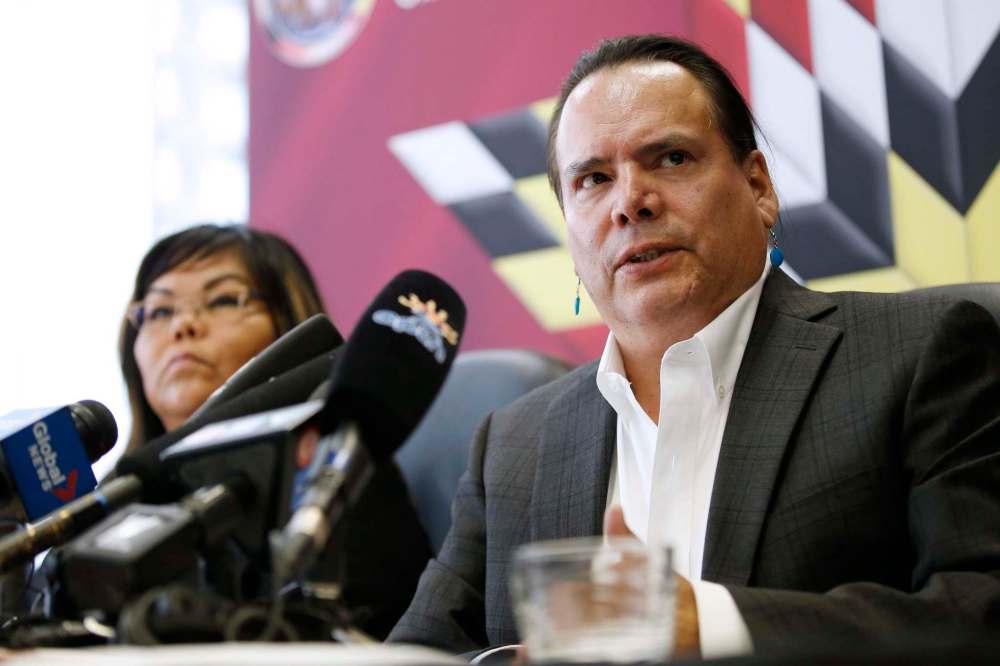
“It is not enough to cry foul. Action must be taken and we are calling for action,” he said.
Settee would also like a meeting with Premier Brian Pallister to voice MKO’s concerns.
Pallister hasn’t spoken publicly yet about the outpouring of Hydro-related allegations, which spilled over while he was on holidays. He returned to work last week.
“If you’re not saying anything about racism, you’re complicit with it. And I don’t think he wants to put himself in that position. So I think that this is such an important matter, he will want to meet,” Settee said.
Interview requests for the premier and Minister of Crown Services Colleen Mayer weren’t accommodated Tuesday. A spokesperson for Minister of Indigenous and Northern Relations Eileen Clarke sent a statement instead.
“Manitoba is working to build better relationships with northern First Nations affected by hydroelectric development, including the Keeyask Hydro project partnership. Minister Clarke was in contact with several community leaders including Chiefs of Fox Lake, War Lake, TCN (Tataskweyak), YFFN (York Factory) last week about an appropriate date to set up further meetings to discuss their concerns about the CEC report and other issues surrounding the Keeyask project,” the statement said.
“Manitoba Hydro has likewise promised to review complaints raised by local indigenous leaders working on the project, and that work continues.”
Settee said he would also welcome the chance to speak with Prime Minister Justin Trudeau when he visits Winnipeg on Sept. 11.
“I think he’s one of those people who are championing equality and inclusion and I think he would be interested to hear this story,” the grand chief said.
jessica.botelho@freepress.mb.ca
Twitter: @_jessbu







